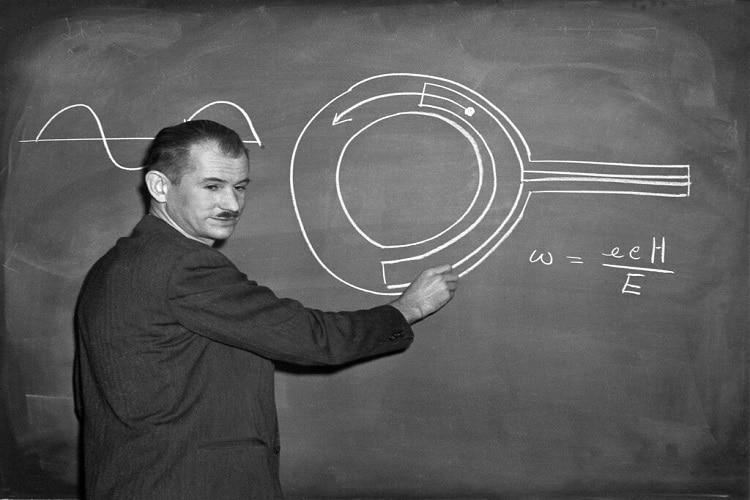Edwin McMillan: Pioneer in Nuclear Physics and Nobel Laureate

Edwin McMillan (18 September 1907 – 7 September 1991) was an American physicist. Edwin McMillan was awarded the Nobel Prize in Chemistry.
Life and Career
Edwin McMillan was born on 18 September 1907, in Redondo Beach, California, United States. McMillan began his academic journey by earning a Bachelor of Science degree from the California Institute of Technology (Caltech) in 1928. He then pursued a Ph.D. in physics at Princeton University, completing his doctoral studies in 1933 under the mentorship of John A. Wheeler.
After completing his doctorate, McMillan joined the University of California, Berkeley, as a faculty member in 1934. He held various positions within the university during his career. McMillan played a crucial role in the development and improvement of the cyclotron, a type of particle accelerator used for nuclear physics experiments. His work on the cyclotron helped advance the study of atomic nuclei and opened up new possibilities for nuclear research.
One of McMillan’s most notable achievements was the discovery of neptunium (element 93) in 1940. This discovery was significant for the field of nuclear science and had implications for the development of nuclear weapons during World War II. Throughout his career, McMillan continued to make important contributions to nuclear physics, including research on the structure of atomic nuclei and the behavior of subatomic particles. He also served on various scientific committees and played a role in shaping the direction of nuclear research. Edwin McMillan passed away on 7 September 1991, in El Cerrito, California, United States.
Award and Legacy
Edwin McMillan was awarded the Nobel Prize in Chemistry for his pioneering work in the discovery of the element neptunium and his contributions to the field of transuranium elements. He shared this prestigious honor with Glenn T. Seaborg, another prominent scientist.
McMillan’s work in nuclear physics, particularly his development of the cyclotron and the discovery of neptunium, had a profound impact on the field. His research helped expand our understanding of atomic nuclei and paved the way for further exploration in nuclear science.
Observer Voice is the one stop site for National, International news, Sports, Editor’s Choice, Art/culture contents, Quotes and much more. We also cover historical contents. Historical contents includes World History, Indian History, and what happened today. The website also covers Entertainment across the India and World.

